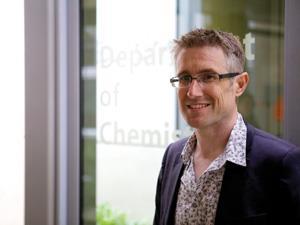We need to convert our students from consumers into creators, says David Smith
Well educated?

In recent times, the UK government has waged war against innovative teaching and promoted traditional practices that pass on knowledge from teacher to student. Continuous and practical assessment methods are viewed as insufficiently rigorous and are being stripped away, leaving written examinations with a heavy emphasis on knowledge and memorisation. Traditionalists will view this as providing a well-educated population. Sadly, this is nonsense. Of course it could be argued that the future of chemistry will be well-served by an education system that provides mastery of scientific concepts and encyclopaedic recall of facts. However, the health of chemistry relies on us producing research chemists, so it is worth reflecting on what they actually do, and what attributes make them successful.
Scientists?
To carry out high-level research it is important to have a good grasp of chemical principles. In reality the most successful researchers are rarely those considered the most knowledgeable – other qualities empower them to succeed. Research scientists must be critical thinkers, able to build logically on observations in order to solve problems. They must participate in highly diverse teams, with leaders who harness their enthusiasm and lead them intelligently. To influence other researchers and participate in the international research agenda, they must communicate clearly, in writing, online and through oral presentations. For transformative research, truly creative thinking is required – scientists should not be afraid to challenge conventions and have confidence to try unexpected things. None of these skills are tested or developed through traditional teaching methods and examinations.
Interestingly, when employers are asked about the suitability of graduates, they rarely say students have insufficient subject-specific knowledge, but would prefer them to have better skills. Students (and indeed academics) are often sadly conservative about developing such skills. However, even in the very narrowest context of university research, it is these skills that will empower them to rise to the top. Recent policy changes are increasingly turning students into consumers. The focus on knowledge and exams does so intellectually, while the introduction of student fees achieves the same goal financially. It is vital that we challenge students to change from being consumers into being creators. Only the act of creating knowledge empowers students to become original thinkers and researchers, and to realise through active learning that their work has genuine value.
Skillful?
In my own chemistry department we provide an integrated programme of skills education throughout our undergraduate degree. This is delivered in a strong chemical context, so while developing skills, students deepen their understanding of fundamental chemistry. From the first year onward, they carry out team research projects in the labs to develop time management, team working and creative thinking skills. Industrial group exercises in which students form ‘chemical companies’ to develop a new product, embed business and financial skills. Through a structured series of scientific presentation opportunities, including the chance to watch a presentation back on video with academic and peer feedback, students gain confidence and verbal skills. By making YouTube videos or writing popular science articles, they develop skills in communicating chemistry to a wider audience. Finally, high-level scientific comprehension and literacy skills exercises empower our students to work confidently with, and contribute to, the research literature.
Skills assessment makes up just over 10% of our degree, with practical and project work contributing a further 30%. Integrated skills teaching of this type is time-intensive. It requires significant support from staff, but allows students to understand and apply the chemistry they are learning in context, as well as providing the skills they will need to face the many challenges beyond education. We believe these activities turn our students into the inventive, creative, communicative researchers needed for the future of science.
Global?
A key factor driving the UK rush to re-embrace traditional teaching of facts and knowledge has been the hope of chasing Singapore and South Korea to the top of international educational league tables. Success obviously requires students to be good at completing the exams used to compile them. This implies that as UK education changes to a more exam-centric approach, students should perform better in these league tables. However, the real question is whether such traditional exams and tests ask anything like the right questions. Interestingly, Asian countries are starting to introduce more creative teaching, realising they must also empower their students with the creativity needed to drive innovation, and the risk-taking ability needed to fuel a modern economy.
Successful?
It is worth considering what the knowledge and recall, loved by the educational traditionalists, is actually good for? Having lots of chemical knowledge is great for answering obscure questions on TV quiz shows – but all that information is readily available on the smartphone in every student’s pocket. In the internet age, the premium is increasingly shifting away from carrying all that knowledge in our heads. Far better to focus our energy on getting students to understand and analyse information, assess its strengths and weaknesses, connect ideas together in innovative ways, and use the available information in creative ways. In the absence of any attempt to develop the skills they need, the next generation of chemists will have excellent memory banks of knowledge and be great at taking exams. Given that there are no exams in research chemistry, and we all have access to Google, will these students really have been prepared to succeed?
David Smith is a professor of chemistry at University of York, UK.









No comments yet